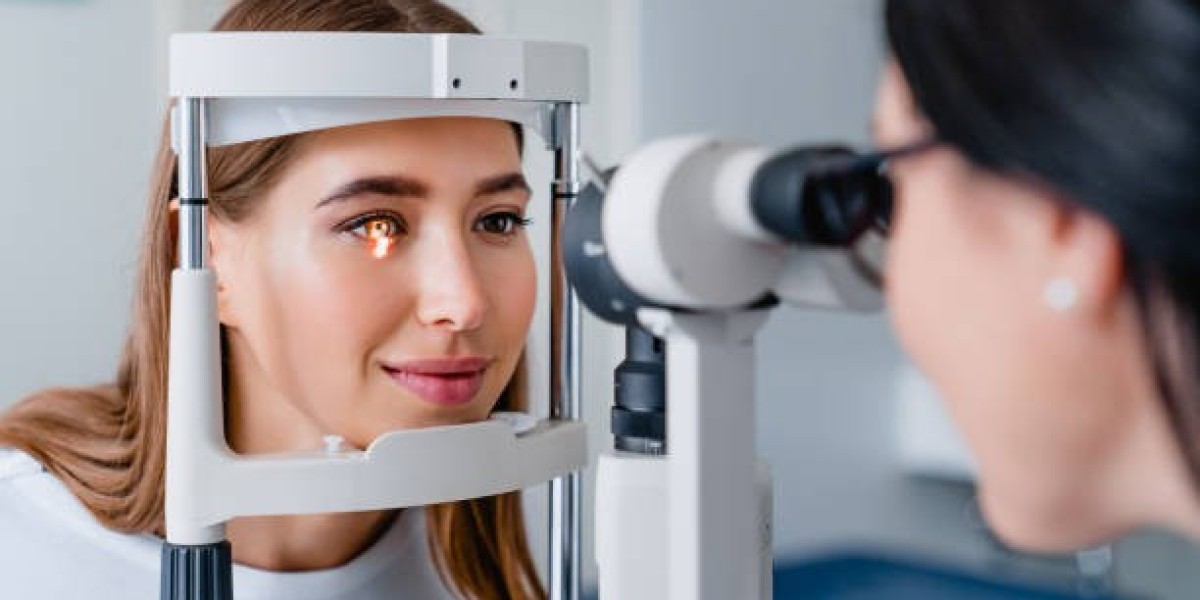Retina detachment is a condition that can have a profound impact on one’s vision and quality of life. It occurs when the retina, a thin layer of light-sensitive tissue at the back of the eye, becomes separated from the underlying layer of support tissue. Without immediate treatment, this condition can lead to irreversible vision loss.
How Retina Detachment Affects Vision
The retina is essential for capturing light and sending visual signals to the brain, where they are interpreted into the images we see. When the retina detaches, this process is disrupted, leading to a range of visual problems:
Sudden Vision Loss: One of the most alarming symptoms of retina detachment is the sudden loss of vision. This may occur in part of the visual field or affect the entire field, depending on the extent of the detachment.
Flashes and Floaters: Before the retina detaches fully, many people experience flashes of light or floaters in their vision. These symptoms are caused by the vitreous pulling on the retina, creating the sensation of light or shadows.
Distorted Vision: As the retina begins to detach, objects may appear distorted or wavy. This occurs because the retina is no longer lying flat against the back of the eye, causing light to bend abnormally.
The Role of the Vitreous in Retina Detachment
The vitreous is a gel-like substance that fills the center of the eye. It is attached to the retina at several points. As we age, the vitreous begins to shrink and liquefy, which can cause it to pull away from the retina. In some cases, this process can lead to tears or holes in the retina, increasing the risk of detachment.
Vitreous detachment is a common condition and does not always lead to retina detachment. However, if the vitreous pulls too hard on the retina or causes a tear, it can result in fluid accumulating behind the retina, leading to separation.
Who Is at Risk for Retina Detachment?
Several factors can increase an individual’s risk of retina detachment:
Aging: People over the age of 50 are more likely to experience vitreous detachment, which can lead to retinal tears.
Previous Eye Surgery: Cataract surgery, laser eye procedures, and other eye surgeries can increase the risk of detachment.
Trauma: A blow to the eye or head can cause the retina to tear or detach.
Genetic Predisposition: Those with a family history of retina detachment are at a higher risk.
Diabetes and Other Medical Conditions: Diabetes can lead to diabetic retinopathy, a condition that damages the blood vessels in the retina and increases the likelihood of detachment.
Addressing Retina Detachment: Treatment Options
If retina detachment is diagnosed, immediate medical intervention is necessary to prevent permanent vision loss. The treatment method will depend on the severity of the detachment:
Laser Photocoagulation: For small retinal tears, laser treatment can be used to create scar tissue that seals the tear and prevents further detachment.
Cryopexy: This technique uses extreme cold to freeze the edges of the retinal tear, which helps to reattach the retina.
Scleral Buckling: In more severe cases, a surgical procedure known as scleral buckling is used. A silicone band is placed around the eye to push the retina back into place.
Vitrectomy: This surgical procedure removes the vitreous gel and replaces it with a solution that keeps the retina in place as it heals.
Recovery and Outlook
The success of retina detachment treatment largely depends on how quickly the condition is diagnosed and treated. In most cases, early treatment by retina specialist can restore vision or prevent further vision loss. However, if the detachment is left untreated, it can lead to permanent blindness.
Following treatment, patients will need to follow specific post-operative instructions, such as keeping their head in a particular position to allow the retina to heal properly. In some cases, additional procedures may be required to ensure a full recovery.
Conclusion
Retina detachment is a serious condition that can lead to vision loss if not treated promptly. By understanding the warning signs, risk factors, and treatment options, individuals can take proactive steps to protect their vision. If you experience sudden flashes of light, floaters, or vision loss, it is essential to seek immediate medical attention to prevent permanent damage.


